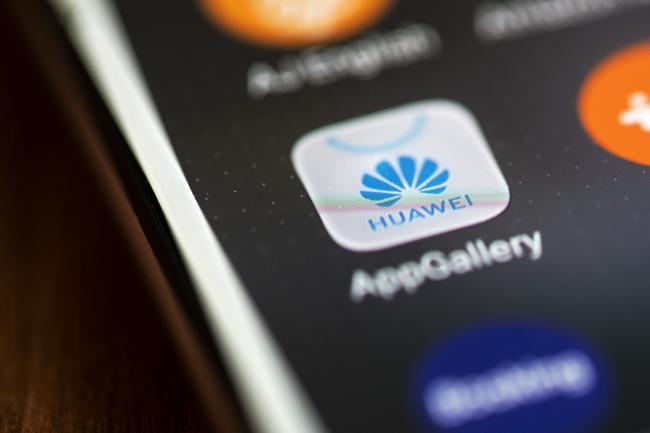(Bloomberg) -- Huawei Technologies Co. made a pitch to app makers last year: Build software for a new Huawei app store outside China, and we’ll help you inside the world’s most populous nation.
China’s largest technology company told potential partners that by the end of 2018, it would have 50 million Europeans using its own app store, rather than Google’s, according to documents viewed by Bloomberg News. Huawei also held talks with European wireless carriers about spreading this new app store even further, people involved in those talks said.
The app store plans, which haven’t been previously reported, underscore how important Europe is for Huawei. The company has been all but shut out of the U.S. phone market due to longstanding security concerns. But now even its designs for Europe are in jeopardy -- along with Huawei’s hard-won status as the world’s second-largest smartphone maker.
That’s because on Friday, the Trump administration restricted American companies from selling to Huawei. The ruling forced Google (NASDAQ:GOOGL) to pull most of its Android operating system and ubiquitous mobile services from future Huawei devices. The U.S. company will still be able to provide key Android security updates under a 90-day reprieve that the Trump administration granted on some export restrictions, a person familiar with the matter said. Google will still withhold its apps from future Huawei phones, the person added.
Without Google’s participation, Huawei’s app store plan has a dim future. That’s because the Chinese company continues to rely on Android to power its smartphones globally, and relies on Google’s most popular apps to win mobile phone shoppers. Trump’s ban is also a setback for the U.S. search giant, which relies on device-makers like Huawei to put its lucrative web services in people’s hands. Representatives for the Chinese company didn’t have immediate comment when contacted for this story.
Huawei phones outside China have used a version of Android that comes with a package of Google services, including search, Maps, YouTube and -- crucially -- the Play store for downloading a wealth of apps. Consumers that already own Huawei devices can keep accessing Google’s services and app store, but any Huawei phones sold after Trump’s ban won’t have these important features, according to Google.
That will make it very hard for Huawei to compete with smartphone rivals like Samsung Electronics (KS:005930) Co. and Apple Inc (NASDAQ:AAPL). Samsung retains unfettered access to the Play store and other Google services, while Apple built its own successful app store over the past decade. On Tuesday, Samsung jumped 4.3% in Seoul, marking its biggest intraday gain in two months.
Unless the U.S. reverses its position, there’s little Huawei can do to salvage its mobile business outside China, said Chetan Sharma, a wireless industry consultant. “It’s a very mature market so trying to displace, say, an Android app store is almost impossible,” he said. “You can do that in China, but not in Europe.”
Instead, Huawei could employ the open-source version of Android, which it uses in China, where Google services are blocked. That version has some scaled-down Google apps, such as Gmail. But the search giant doesn’t control them, and so it can’t manage security upgrades or reap the consumer data that make the services useful and fuel advertising.
Or, the Chinese company could use its own software. Huawei’s mobile chief, Richard Yu, said last year the company was working on its own operating system. On Monday, another Huawei executive told the Financial Times that this OS has already been trialed in parts of China and “can kick in very quickly.”
A pillar of this independent strategy was Huawei’s homegrown app store. But that faces an uncertain future now.
The company introduced this digital hub, called the App Gallery, to phones outside China in early 2018. An app store is worthless without the popular services that smartphone users in most western economies have come to rely on. So Huawei began pitching developers to tailor their existing Android apps for its App Gallery store, according to internal documents obtained by Bloomberg News and five people who have spoken with the company. The people asked not to be identified discussing private matters.
Huawei’s app store strategy centered on Europe. It held more than 20% of the smartphone market in 22 countries there, including Spain, Italy and the Netherlands, according to the internal documents from last year.
Europe is also where Google is on the retreat. An antitrust ruling last summer forced Google to stop bundling its services into contracts with Android phone makers. That let other companies provide search, web browsers or app stores on Android phones out-of-the-box.
Huawei held talks this year with European wireless carriers about installing App Gallery on new devices, said one person familiar with the conversations. The Chinese company proposed splitting revenue from the store, offering a “very significant” portion to partners, this person said. Under the plan, carriers’ phones would come pre-installed with App Gallery, alongside Google’s app store.
For developers that agreed to build apps for Huawei’s store, the company pledged marketing support and “China app store exposure,” according to one of the documents. One feature in Huawei’s pitch promised app creators a simple tool to tweak the software they wrote for Google’s store to work on App Gallery. Another document touted Huawei’s chip and graphics processing prowess as an advantage.
Trump’s ban could bring App Gallery, and Huawei’s broader smartphone expansion plans, to a grinding halt. If Google can’t provide software and services to future devices made by the Chinese company, other U.S. companies may be restricted, too.
“Huawei has its own mobile operating system as a backup, but it’s not fully ready yet and it’s very difficult to build up the ecosystem as Huawei has been doing on Android,” said Charlie Dai, an analyst at Forrester Research.
